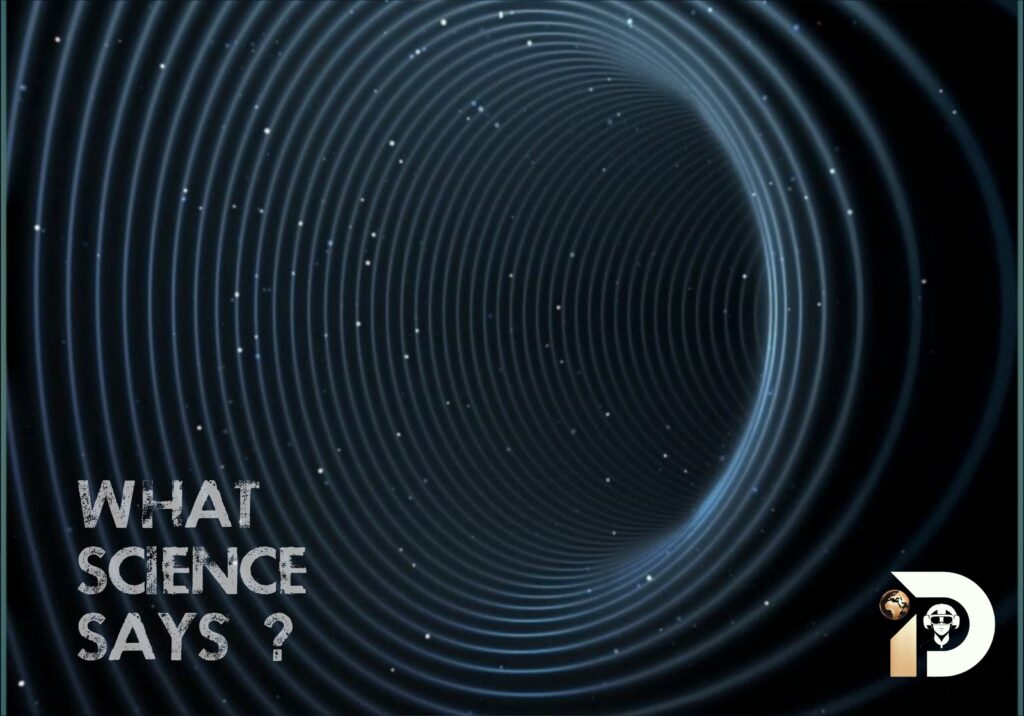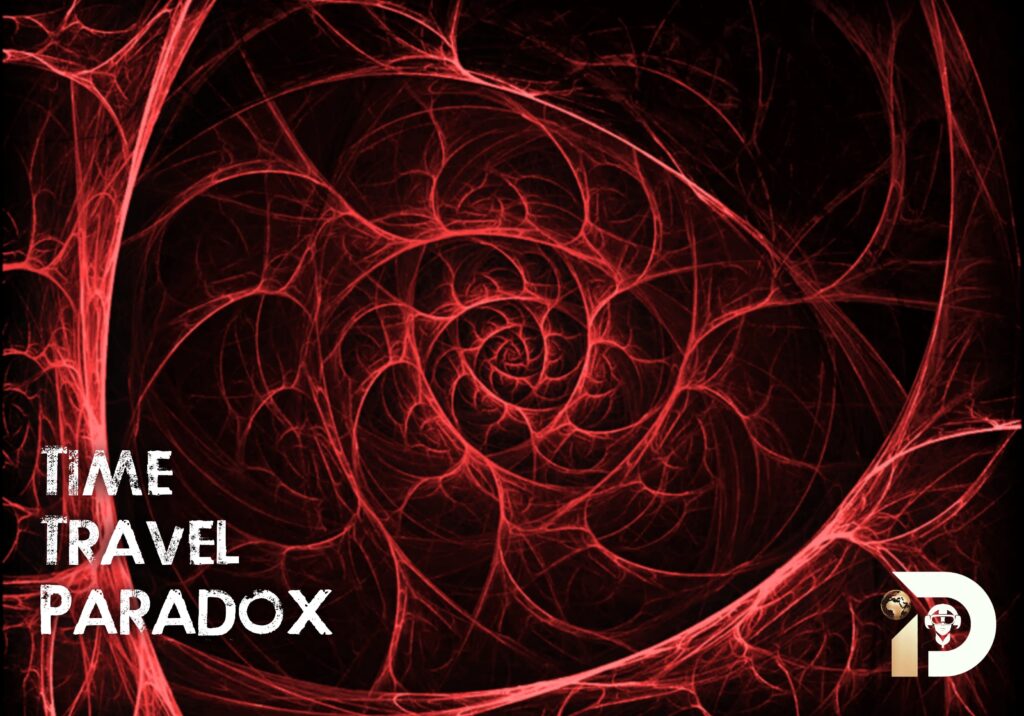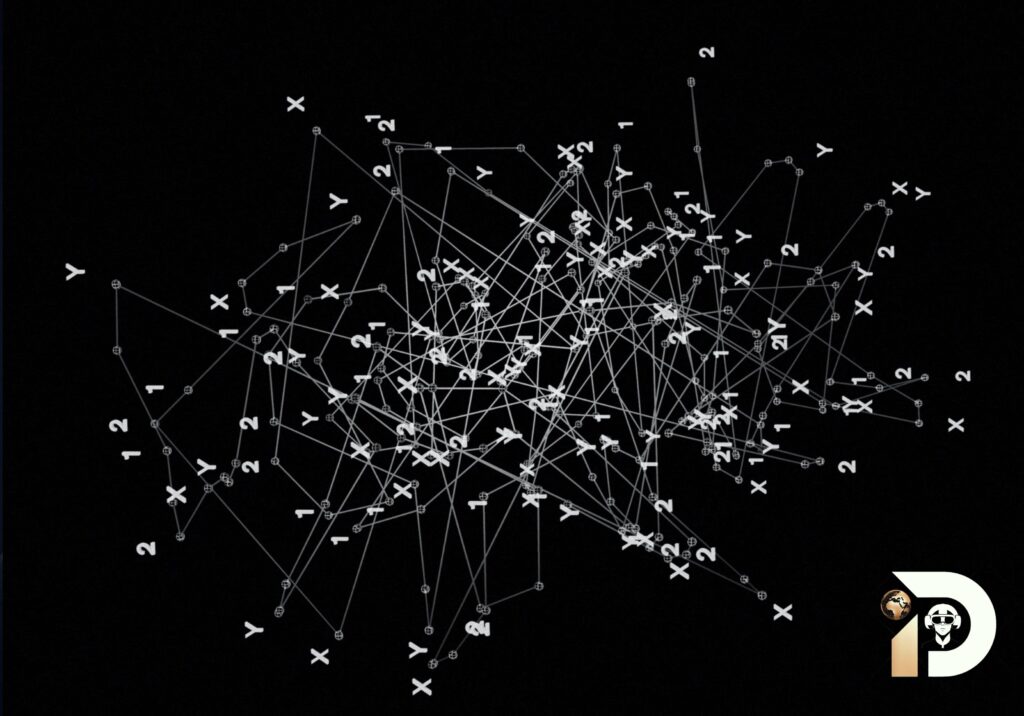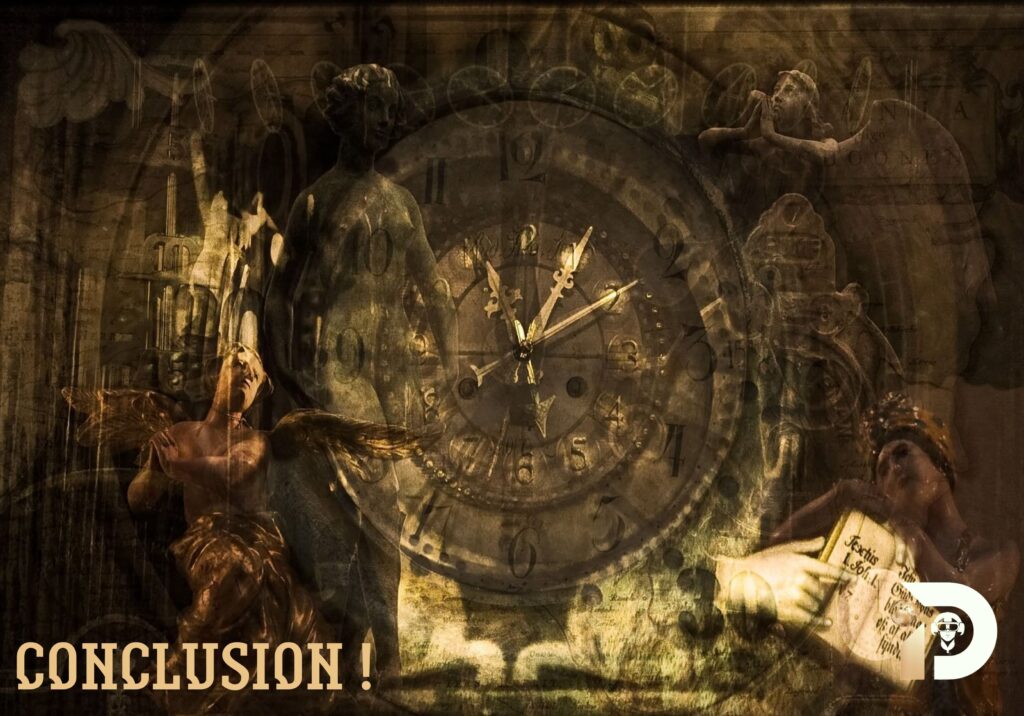• Introduction
Welcome fellow time-travel enthusiasts! Grab your virtual goggles and buckle up for a mind-bending journey into the realms of time travel. Are you prepared to investigate the fascinating possibilities and unravel the mysteries of this fascinating concept? Well, here we go!
Time travel has been a rising question since the dawn of human curiosity. Can we really traverse through the corridors of time and experience the past or future firsthand? Or is it all just a figment of our overactive imaginations? Let’s dig deep into the science, fiction, and everything in between to find out the truth behind this elusive phenomenon. Get ready to question everything you ever thought you knew about time and its constraints. Buckle up,because this adventure is about to get wild!
Table of Contents

• The Term ‘Concept of Time Travel
Ah, time travel! We’ve all grown up pondering the mysteries of traveling through time and different dimensions, thanks to innumerable movies, books, and daydreams. But let’s get real for a moment, shall we? Time travel is either an incredible scientific breakthrough waiting to happen or simply a fantasy that we can only explore in the realm of fiction.
First things first, let’s debunk some of relative myths and misconceptions about time travel.Contrary to what Hollywood wants us to believe, hopping into a vintage DeLorean or a police phone booth won’t magically transport us into the past or future. Sorry, Doc Brown and Bill and Ted, life just isn’t that exciting.
Now, let’s talk Einstein and his theory of relativity. According to good ol’ Albert, time is not some constant, ticking away at the same pace for everyone. It can vary depending on your speed and gravity. It’s like that one friend who’s perpetually 15 minutes late for everything, except on a cosmic scale. So technically, time travel might be possible if we can harness these cosmic quirks to our advantage.
Enter wormholes and black holes, the interstellar shortcuts to time travel. Wormholes are like cosmic tunnels that connect different parts of the universe. If we can find and manipulate one, it could potentially act as a gateway to travel vast distances in an instant. And black holes, those celestial vacuum cleaners, possess mind-boggling gravitational forces that could potentially warp time. But, there’s a catch. Surviving the journey through a black hole might be a tiny bit challenging, to say the least.
So, there you have it! The concept of time travel isn’t just some wacky idea cooked up in science fiction. There are actual theories and possibilities behind it, involving Einstein, wormholes, and black holes. But before we start packing our bags for a trip to the Middle Ages or the future, let’s delve deeper into what science has to say about this perplexing phenomenon.

• Time Travel in Pop Culture
Ah, time travel, the mystical concept that has captured the imaginations of millions. We’ve all seen movies and TV shows that take us on a wild ride through time, allowing us to experience life in a different era. While it’s easy to dismiss time travel as pure fiction, there are some mentions of it in the world of science. But first, let’s talk about the real heroes here– the movies and TV shows that popularized the idea.
Who can forget classics like “Back to the Future” where Marty McFly hops into a DeLorean and zips through time? Or how about “Doctor Who” with the infamous TARDIS that can take you anywhere in time and space? Let’s not ignore H.G. Wells’ “The Time Machine,” either. iconic novel turned into a captivating film. These were few examples of the innumerable movies and TV shows that given us a taste of time travel.
But it’s not just about the stories; it’s also about the characters. We’ve fallen in love with time-traveling heroes like the Doctor, a quirky and charming Time Lord who saves the universe with his wit and a trusty sonic screwdriver. And there’s Marty McFly, who inadvertently becomes entangled in his family’s history while trying to fix the future. These characters show us that time travel isn’t just about the technology; it’s about the journeys and personal growth that come with it.
Of course, we can’t talk about time travel in pop culture without mentioning the influence of science fiction. From literature to movies, science fiction has pushed the boundaries of our imagination and made time travel a household concept. Writers like Jules Verne and Isaac Asimov paved the way for modern sci-fi, introducing us to the idea of exploring the past and future. Today, their visions continue to inspire new generations of storytellers, creating a never-ending loop of time-travel tales.
So, next time you find yourself engrossed in a movie or TV show that transports you through time, remember the power of imagination and how it has shaped our collective fascination with time travel. Whether it’s the iconic movies, the beloved characters, or the vast realm of science fiction, time travel has become an integral part of our culture, capturing our hearts and minds as we yearn for the possibility of exploring the uncharted territories of time. Remember, time waits for no one, so let’s cherish the moments we have and keep dreaming of what lies ahead.

• What Science Says
Okay, folks, time to put on our lab coats and dive deep into the world of scientific research on time travel. Brace yourselves, because we’re about to embark on a mind-bending journey of possibilities, challenges, and experimental findings.
• Theoretical Possibilities
According to the brainiacs in the scientific community, there are various theoretical possibilities for time travel. One popular concept is the idea of wormholes, those fancy cosmic tunnels that supposedly connect different points in spacetime. Einstein’s theory of relativity, which grooves to the beat of “time is relative,” suggests that it might be possible to navigate through these wormholes and take a detour into the past or future. Talk about a shortcut!
• Challenges and Limitations
Of course, no great adventure is without its fair share of challenges. Time travel, my friends, is no exception. Apart from the lack of any Delorean-like time machines in our garages, there are some serious scientific hurdles to overcome. The energy required to create or maintain a wormhole, for instance, is mind-bogglingly enormous. We’re talking about tapping into levels of power that make the sun look like a dim little flashlight. Not to mention the potential for wreaking havoc with the delicate fabric of spacetime. Whoops!
• Experimental Research and Findings
Now, let’s get down to business and talk about the real-life experiments that have been conducted in the quest for time travel. Spoiler alert: we’re not quite there yet. Scientists have played around with all sorts of nifty gadgets, like atomic clocks and super-fast moving jets, to test the effects of time dilation. And yes, they’ve found that time does indeed pass differently depending on how fast you’re going or how strong the gravitational pull is. But as for actually zapping ourselves into the past or future? Well, as of now, that’s still firmly in the realm of science fiction.
There you have it, my fellow time-travel enthusiasts. While it’s exhilarating to ponder the theoretical possibilities and get excited about our favorite time-traveling characters, we must also acknowledge the challenges and limitations that currently stand in the way. It’s like trying to find a unicorn in a haystack – a tantalizing idea, but not quite within our grasp yet. But hey, who knows what the future holds? And that, my friends, is where the real adventure begins. Stay curious, stay awe-inspired, and always keep your watch set to “unpredictable.”

• Time Travel Paradoxes
Ah, the tricky quandaries of time travel! As soon as you believe you understand everything, paradoxes come crashing in like uninvited guests at a time-traveling party. Let’s dive into some mind-boggling paradoxes that make you question the very fabric of the space-time continuum.
First up, we have the grandfather paradox. accidentally prevent your grandfather from meeting your grandmother. Now, if they don’t meet, then your parents won’t be born, and that means…uh-oh, you won’t be born either! Congratulations, you’ve just entered the realm of paradox! Time travel can be such a headache.
Next, we have the bootstrap paradox. Imagine you travel back in time and give Beethoven a sheet of music he never composed. Eventually, that music becomes famous, inspiring Beethoven to compose it. But wait a minute…where did the music come from in the first place? It’s an endless loop of creation and no origin. Talk about a musical mind-melter!
Lastly, we have the predestination paradox. Suppose you travel back in time to meet your idol and give them a book they will write in the future. The question is: who wrote the book initially? Did you create it, or did your favorite author? It’s like a timey-wimey game of chicken and egg.
These paradoxes show just how tangled and unpredictable time travel can be. One small change in the past can send ripples throughout history, leaving us scratching our heads in confusion. So, while time travel in movies and books may seem thrilling and adventurous, the reality is far more complicated. Perhaps we should stick to appreciating the concept from a safe distance, with a bowl of popcorn and a good sense of humor. After all, time travel paradoxes may be mind-bending, but they sure make for great conversation starters!

• Speculations and Theories
Well, we’ve now moved into the domain of conjecture and theories. Buckle up, folks, because things are about to get real juicy! So, there’s this wild theory called the Multiple Universes Theory. Basically, it suggests that there are countless universes out there, each with its own set of rules and timelines. It’s like a mega cosmic party, and we’re just hopping from one party to another.
Then we have the concept of parallel timelines. Picture this: you make a decision, and suddenly, a new timeline splits off where you chose differently. Talk about having your cake and eating it too! So, in theory, time travel could potentially allow us to hop between these parallel timelines and experience different outcomes. Want to see a world where socks never disappear in the laundry? Well, time travel might just be your ticket!
Now, here’s an intriguing thought: is time travel only possible to the future? It’s like waiting for the latest season of your favorite show to release, except you can fast-forward through time to binge-watch it right away. Some scientists believe that traveling back in time might mess with the whole cause-and-effect thing, leading to disastrous paradoxes. So, for now, let’s keep our time travel adventures focused on the future.
And there you have it, folks! Speculations and theories that will make your mind spin faster than a DeLorean hitting 88 miles per hour. With multiple universes, parallel timelines, and a one-way ticket to the future, time travel sure is a mind-bending concept. But, hey, who am I to say it’s all fiction? After all, the universe is a mysterious place, and we’ve only scratched the surface of what’s possible. Time will tell, my friends, time will tell.

• Conclusion
Time travel has captured our imaginations for centuries, but what does science have to say about it? Well, according to the key points explored in this blog, there are theoretical possibilities of time travel, thanks to concepts like wormholes and black holes. However, it’s not as simple as hopping into a DeLorean and zooming off. Science also highlights the challenges and limitations of time travel, including paradoxes like the grandfather paradox and the bootstrap paradox. While multiple universes and parallel timelines offer interesting speculations, time travel to the future seems more feasible than going back in time. So, buckle up and keep your eyes on the road, because in this wild ride of time travel, only the future holds the answers!
Liked Our Blog! Just Share It With Your Friends 😃
